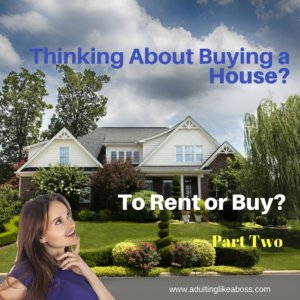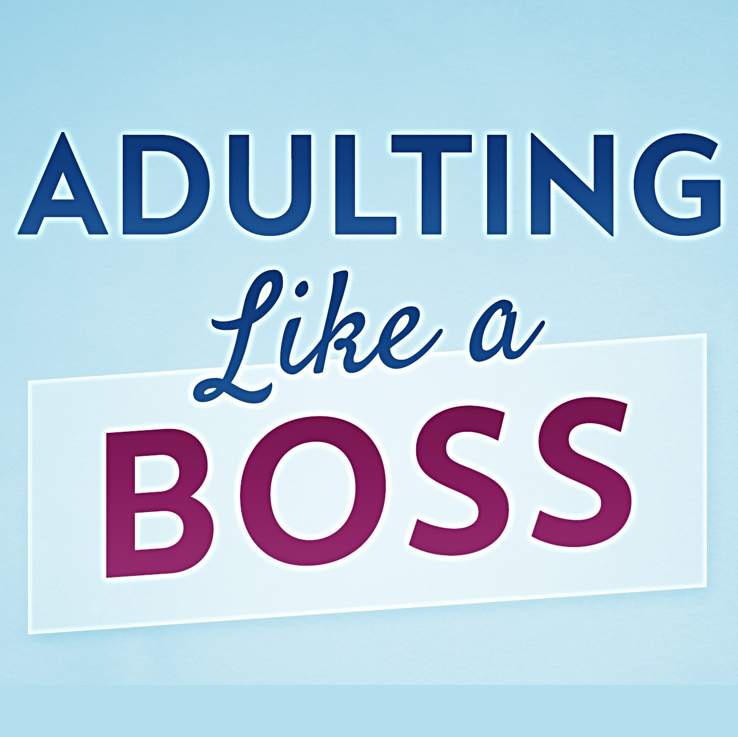 [Continuing from last week’s article “Thinking About Buying a House? – Pt. 1”]
[Continuing from last week’s article “Thinking About Buying a House? – Pt. 1”]
You have to live somewhere, and if you’ve tried apartment life and are beginning to think about a house, a condo, or a townhome, for example, you need to decide if you are going to be a renter, or a homeowner.
I am not pushing one over the other, because in my opinion, there are huge advantages to both. But if you are fairly stable and planning to be in one place for a few years, I’d encourage you to at least think about buying.
Probably the one thing that scares people the most about is the money you have to have up front. It’s not only the down payment, but there are several other expenses you have to come up with.
- Earnest Money. That’s basically a deposit to let the seller know you have a serious offer.
- Home Appraisal. To make sure the house is worth what you’re paying for it.
- Home Inspection. To find anything that might need repairing or fixing – or even finding major problems that would prevent you from buying the house OR assure you that the house is in great shape.
- Property Taxes. (sometimes)
- First Year’s Homeowners Insurance.(most of the time)
- Other Closing Costs.
So, it’s not small thing, but if you want to buy a home, it’s definitely worth cutting out your daily coffee run and wearing last year’s styles to cut expenses and save up.
Those who push buying over renting would tell you that you are either going to be paying your own mortgage or you’re going to be paying someone else’s. And in fact, that is exactly what one of my friends decided to take advantage of. She bought a house right out of college, found roommates, and charged them enough rent to cover her mortgage cost. So she basically was buying a house without having to pay anything.
So what are some advantages and disadvantages of renting vs buying? I’m going to name a few – and see it from both sides, because at the end of the day, YOU are the one who has to make the decision.
If you buy – your money is going to an investment – the house.
If you rent – once your rent is paid, that money is gone.
If you buy – something breaks, and it’s your responsibility.
Rent – it’s the landlord’s problem.
Buy – What if you decide you don’t like the neighborhood? The location? You get a better job in another town? You have to sell, and that can be a hassle, and if the house doesn’t sell easily, you’re locked in with a long commitment. If you are going to buy, consider it a long term commitment, and even think ahead about schools for your future children, where your friends live, and how long it will take you to get everywhere. (You’ve probably heard that the three most important things in buying a house are location, location, location!)
Rent – You can easily pull up roots and move, or choose a new neighborhood, town, etc. The only thing tying you down is a lease, which is usually renewed only every 6-12 months.
Your financial picture is the biggest consideration – there are quite a few things you can deduct from your taxes if you’re buying like the interest you’re paying on the loan, and property taxes. On the other hand, if you’re renting and your financial situation changes, you can move out or at the very worst, get evicted from your apartment. If you’re buying and you can’t pay the mortgage, you’ll be foreclosed on, and that’s lots worse.
Speaking of finances, if you’re buying – it’s all up to you – all the utilities, upkeep, etc. But if you’re renting – sometimes water, gas, garbage pickup or other things are included in the rent, and you don’t have to worry about them.
On the other hand, if you buy today, and the mortgage payment is X amount, it will still be that 25 years later when the economy has changed and inflation has driven the rent cost for the equivalent house up and up.
Just a couple other things about buying vs renting – mostly leaning to the buying side: If you are the homeowner, you can make whatever changes your heart desires – paint, remodel, hang pictures, etc. But if you’re renting, you have to get permission to do any of that. And if you do make any improvements, although you may enjoy the improvements, eventually those are the landlord’s improvements that benefit his property.
Also, if you have a yard, sometimes (depending on the situation) you aren’t responsible for the rental property’s yard, but if you own, it’s your responsibility to keep the yard up (unless you’re in a condo or townhome that provides that service out of your association fees).
If you know much about me, you know I love my big dog Val, but I’m sure I wouldn’t be able to have him in most rental properties. (He’s over 100 lbs.)
So if you’re staying put for a few years, at least think about buying – it might be right for you.
